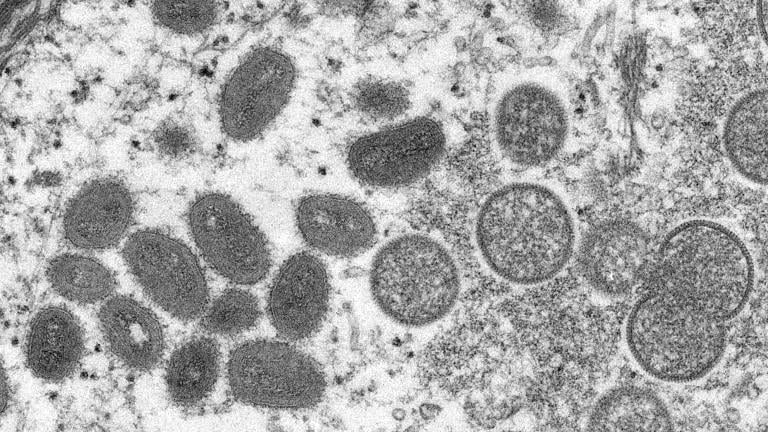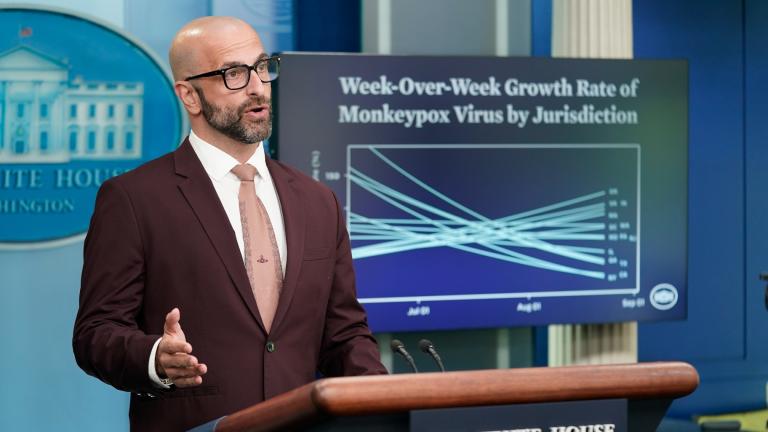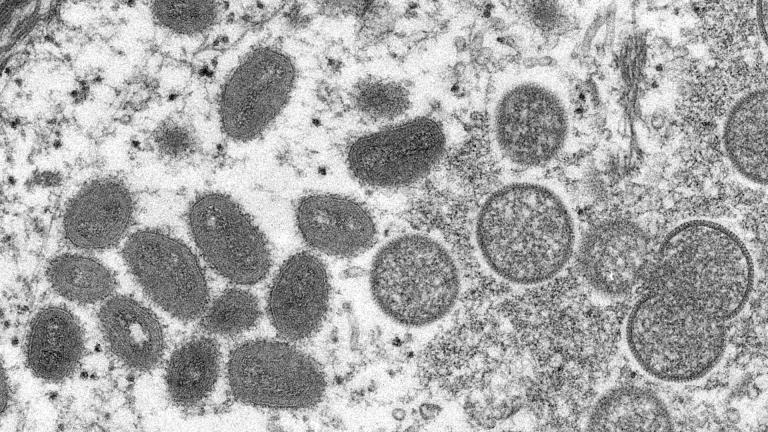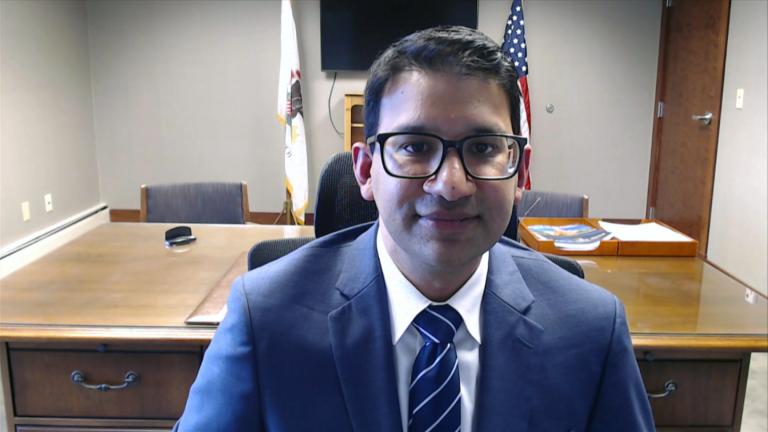There are now 533 confirmed monkeypox cases in Illinois. And one of those cases was confirmed last week in Cook County Jail.
Cook County Sheriff Tom Dart’s office said the individual is believed to have contracted the virus in the community prior to being ordered into custody. The person was taken into medical isolation.
Dr. Emily Landon, executive medical director for infection prevention and control at UChicago Medicine, said spreading the disease is about skin-to-skin contact, especially with lesions and not so much respiratory droplets like COVID-19. Monkeypox is not as likely to contaminate the air around you, which allows more of an opportunity to control it, she added.
However, with people in tight spaces like a jail, a lot has to change in order for people to not give one another monkeypox, Landon said. One of issues she pointed to is the lack of vaccine doses.
Monkeypox takes 8 to 14 days to develop after an exposure, and vaccination after an exposure can be used to prevent people from getting sick.
Amanda Klonsky, research and policy fellow at the COVID Behind Bars Data Project at University of California Los Angeles Law School, said after watching how jails and prisons have handled COVID, it is a cause of concern for how monkeypox will be controlled.
“These conditions are really a threat to public health — not only for people inside of the jail, but in the community at large, especially for people of color, Black and Latinx people who are particularly impacted by over policing and are overrepresented in the jail,” Klonsky said.
At one point during the beginning of the pandemic, Cook County Jail was the nation’s largest-known source of coronavirus infections, according to data compiled by the New York Times.
The sheriff’s office said in a statement that many of their COVID protocols are still in place to combat the virus, like medical isolation, quarantine, screening and testing.
Klonsky pointed to reducing the jail population as another mitigation tactic — as the jail did in the beginning of the pandemic.
In March 2020, expedited hearings were ordered on releasing inmates with underlying health issues, those facing misdemeanor and non-violent felony charges, and those with money bonds they can’t afford.
Gov. J.B. Pritzker declaring monkeypox a public emergency in Illinois will open up access to funding for further mitigation strategies, said Landon.






